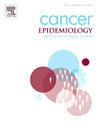Measuring healthy life expectancy and determinants of poor perceived health: A population-based study among a subset of rare and common cancer survivors
IF 2.4
3区 医学
Q3 ONCOLOGY
引用次数: 0
Abstract
Background
As the survival proportions for rare cancers are on average worse than for common cancers, assessing the expected remaining life years in good health becomes highly relevant. This study aimed to estimate the healthy life expectancy (HLE) of a subset of rare and common cancer survivors, and to assess the determinants of poor perceived health in rare cancer survivors.
Methods
To calculate HLE, survival data from the population-based Netherlands Cancer Registry of survivors of a rare cancer (i.e., ovarian cancer, thyroid cancer, Hodgkin lymphoma, non-Hodgkin lymphoma) (n=21,376) and a common cancer (i.e., colorectal cancer (CRC)) (n=76,949) were combined with quality of life (QoL) data from the PROFILES registry on a random sample of the rare (n=1025) and common cancer (n=2400) survivors. A flexible parametric relative survival model was used to estimate life expectancy (LE) and years of life lost, and multivariate logistic regression was applied to determine factors related to reported poor perceived health.
Results
Patients previously diagnosed with a rare cancer had an average LE of 8–36 years and were expected to spend ≥67 % of their remaining life in good health. CRC survivors had an average LE of 10 years with approximately 65 % of their remaining life expected to spend in good health. For all cancer types, those aged ≥65 years or with stage IV had the lowest HLE. Low socioeconomic status, advanced stage, and having received radiotherapy only were important predictors of poor perceived health among rare cancer survivors.
Conclusion
HLE can provide meaningful perspective for patients and practitioners for all cancer types, including rare cancers. Yet, data on QoL for rare cancers should be routinely collected, as such will serve as an indicator for monitoring and improving cancer care, and for enabling HLE measurements in cancer survivors.
衡量健康预期寿命和不良健康感知的决定因素:一项针对罕见和常见癌症幸存者的人群研究。
背景:由于罕见癌症的平均存活比例低于常见癌症,因此评估健康状况良好的预期剩余寿命就变得非常重要。本研究旨在估算罕见癌症和普通癌症幸存者子集的健康预期寿命(HLE),并评估罕见癌症幸存者健康状况差的决定因素:为了计算 HLE,我们从荷兰癌症登记处收集了罕见癌症(即卵巢癌、甲状腺癌、霍奇金淋巴瘤、非霍奇金淋巴瘤)和常见癌症(即结直肠癌 (CRC))幸存者的生存数据(21,376 人)、将罕见癌症(1025 人)和常见癌症(2400 人)幸存者的随机抽样数据与 PROFILES 登记处提供的生活质量(QoL)数据相结合。采用灵活的参数相对生存模型来估算预期寿命(LE)和损失的生命年数,并采用多变量逻辑回归来确定与所报告的健康感知不良有关的因素:结果:曾被诊断为罕见癌症的患者的平均预期寿命为 8-36 年,预计其余生中健康状况良好的时间≥67%。CRC 幸存者的平均寿命为 10 年,预计其剩余生命中约 65% 的时间处于健康状态。在所有癌症类型中,年龄≥65 岁或处于 IV 期的患者的健康生活率最低。在罕见癌症幸存者中,社会经济地位低、晚期和只接受过放疗是预测健康状况差的重要因素:HLE可以为包括罕见癌症在内的所有癌症类型的患者和医生提供有意义的视角。然而,罕见癌症的 QoL 数据应常规收集,因为这将作为监测和改善癌症护理的指标,并可用于测量癌症幸存者的 HLE。
本文章由计算机程序翻译,如有差异,请以英文原文为准。
求助全文
约1分钟内获得全文
求助全文
来源期刊

Cancer Epidemiology
医学-肿瘤学
CiteScore
4.50
自引率
3.80%
发文量
200
审稿时长
39 days
期刊介绍:
Cancer Epidemiology is dedicated to increasing understanding about cancer causes, prevention and control. The scope of the journal embraces all aspects of cancer epidemiology including:
• Descriptive epidemiology
• Studies of risk factors for disease initiation, development and prognosis
• Screening and early detection
• Prevention and control
• Methodological issues
The journal publishes original research articles (full length and short reports), systematic reviews and meta-analyses, editorials, commentaries and letters to the editor commenting on previously published research.
 求助内容:
求助内容: 应助结果提醒方式:
应助结果提醒方式:


